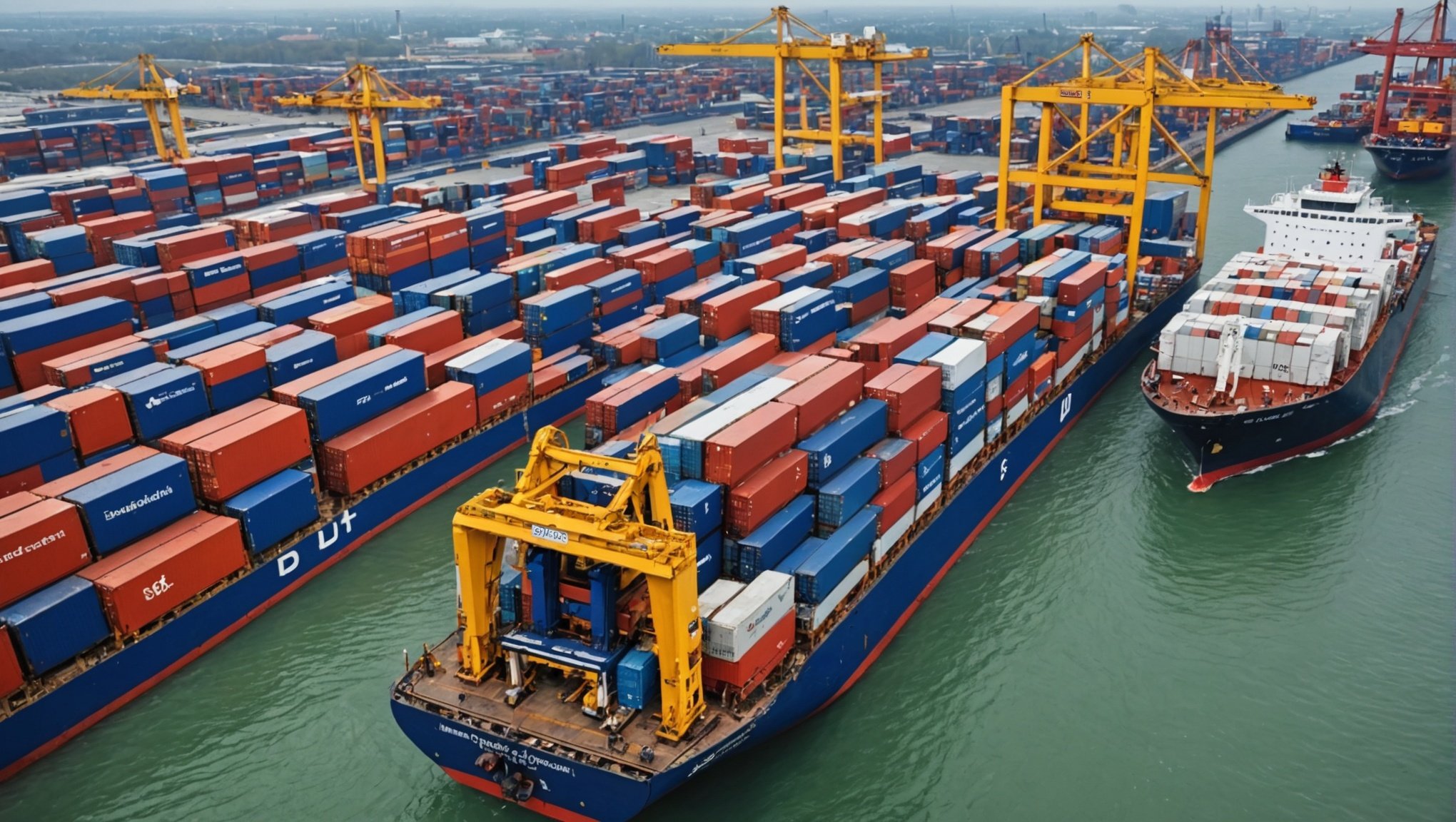Shipment transparency is transforming the logistics landscape in the UK, and blockchain technology is at the forefront of this revolution. By integrating secure, decentralized ledgers, businesses can enhance tracking, reduce fraud, and build trust with customers. Discover how this innovative approach not only streamlines processes but also provides stakeholders with real-time visibility into shipment status. Embrace the future of logistics—where every transaction is traceable, and transparency drives efficiency and accountability.
Overview of Blockchain Technology in Logistics
Blockchain technology is revolutionising the logistics industry by enhancing transparency and efficiency in the supply chain. At its core, blockchain is a decentralised digital ledger that records transactions across multiple computers. This ensures that the recorded information is immutable and accessible to all participants, fostering trust and collaboration.
Also to see : Unlocking Geofencing: A Guide for UK Local Businesses to Boost Targeted Marketing Efforts
In logistics, transparency is crucial. With blockchain, every transaction or movement within the supply chain is recorded in a secure and verifiable manner. This transparency helps in reducing fraud, errors, and discrepancies, ultimately leading to more efficient operations.
Blockchain addresses several challenges in logistics by providing a single source of truth. It enables real-time tracking of goods, ensuring that all stakeholders have access to the same information. This reduces delays and improves coordination among suppliers, manufacturers, and distributors. Additionally, blockchain can automate processes such as payments and contract execution through smart contracts, further streamlining the logistics operations. By integrating blockchain technology, companies can achieve a more resilient and responsive supply chain.
Also read : Transforming Member Experience: Innovative Ways UK Fitness Centers Can Leverage Smart Technology
Benefits of Blockchain for Shipment Transparency
Implementing blockchain technology in logistics brings numerous advantages, particularly in enhancing shipment transparency. One of the primary benefits is the real-time tracking and visibility of shipments. Blockchain allows all parties in the supply chain to access up-to-date information about the location and status of goods. This ensures that any discrepancies can be addressed promptly, reducing delays and inefficiencies.
Another significant advantage is the enhanced security and data integrity that blockchain provides. By recording every transaction on a decentralised ledger, blockchain ensures that data is tamper-proof and secure from unauthorised access. This level of security is crucial in preventing fraud and maintaining the accuracy of shipment information.
Furthermore, blockchain fosters trust among stakeholders in the supply chain. With all participants having access to the same verified data, there is less room for misunderstandings or disputes. This transparency builds confidence among suppliers, manufacturers, and distributors, leading to more collaborative and efficient logistics operations.
Applications of Blockchain in UK Logistics
Blockchain technology is making waves in the UK logistics sector, with numerous companies adopting it to streamline their operations. Notable examples include Maersk and IBM, who have collaborated to develop TradeLens, a blockchain-based platform that enhances transparency and efficiency in shipping. This platform allows for the secure exchange of information among shipping partners, significantly reducing paperwork and the risk of fraud.
Smart contracts are a prominent blockchain application in logistics. These digital agreements automatically execute and enforce terms once certain conditions are met, eliminating the need for intermediaries. For instance, when a shipment reaches its destination, a smart contract can trigger payment automatically. This not only speeds up the transaction process but also reduces administrative costs.
Moreover, blockchain is employed to automate various processes, such as inventory management and shipment tracking. By providing a single source of truth, blockchain ensures that all stakeholders have access to the same real-time data, thus improving coordination and decision-making. This automation leads to enhanced efficiency and a notable reduction in operational costs.
The impact of blockchain on UK logistics is profound, with companies experiencing increased efficiency and cost savings. By leveraging blockchain applications, logistics providers can enhance their service offerings, fostering a more competitive and resilient industry.
Challenges and Considerations in Adopting Blockchain
Adopting blockchain technology in logistics comes with its own set of challenges, despite its potential benefits. One significant hurdle is the technological barriers involved. Many logistics companies face difficulties integrating blockchain with their existing systems. This integration requires substantial investment in new infrastructure and training, which can be daunting for businesses accustomed to traditional methods.
Additionally, regulatory and legal considerations pose challenges, particularly in the UK. The evolving nature of blockchain technology means that regulations are often unclear or not yet fully developed. Companies must navigate these uncertainties to ensure compliance, which can be a complex and time-consuming process.
Resistance to change is another barrier in the logistics industry. Stakeholders may be hesitant to adopt new technologies due to concerns about disruption to established workflows. Overcoming this resistance requires demonstrating the tangible benefits of blockchain, such as improved efficiency and security.
In summary, while blockchain holds promise for transforming logistics, addressing these implementation barriers is crucial for its successful adoption.
Trends and Future Implications for Blockchain in Logistics
The future of blockchain in the logistics sector is poised for transformative changes, driven by several emerging trends. One significant trend is the increased adoption of blockchain-based platforms that facilitate seamless data sharing across the supply chain. These platforms are set to enhance collaboration and efficiency, providing real-time insights into shipment movements and conditions.
As the logistics industry evolves, the future of blockchain is predicted to revolutionise shipment transparency in the UK. This evolution will likely involve more sophisticated tracking systems that utilise blockchain to offer enhanced visibility and accountability. The integration of Internet of Things (IoT) devices with blockchain could further refine data accuracy and timeliness, ensuring stakeholders have precise information at their fingertips.
Globally, the impact of blockchain on supply chains and trade dynamics is expected to be profound. By enabling more secure and transparent transactions, blockchain can reduce trade barriers and streamline international logistics operations. This could lead to a more interconnected global market, where the future of blockchain plays a pivotal role in fostering trust and efficiency across borders.
Industry insights suggest that as blockchain technology matures, its application in logistics will expand beyond current capabilities, potentially reshaping how goods are transported and managed worldwide. The logistics trends driven by blockchain are set to redefine industry standards, making processes more agile and responsive to market demands.
















